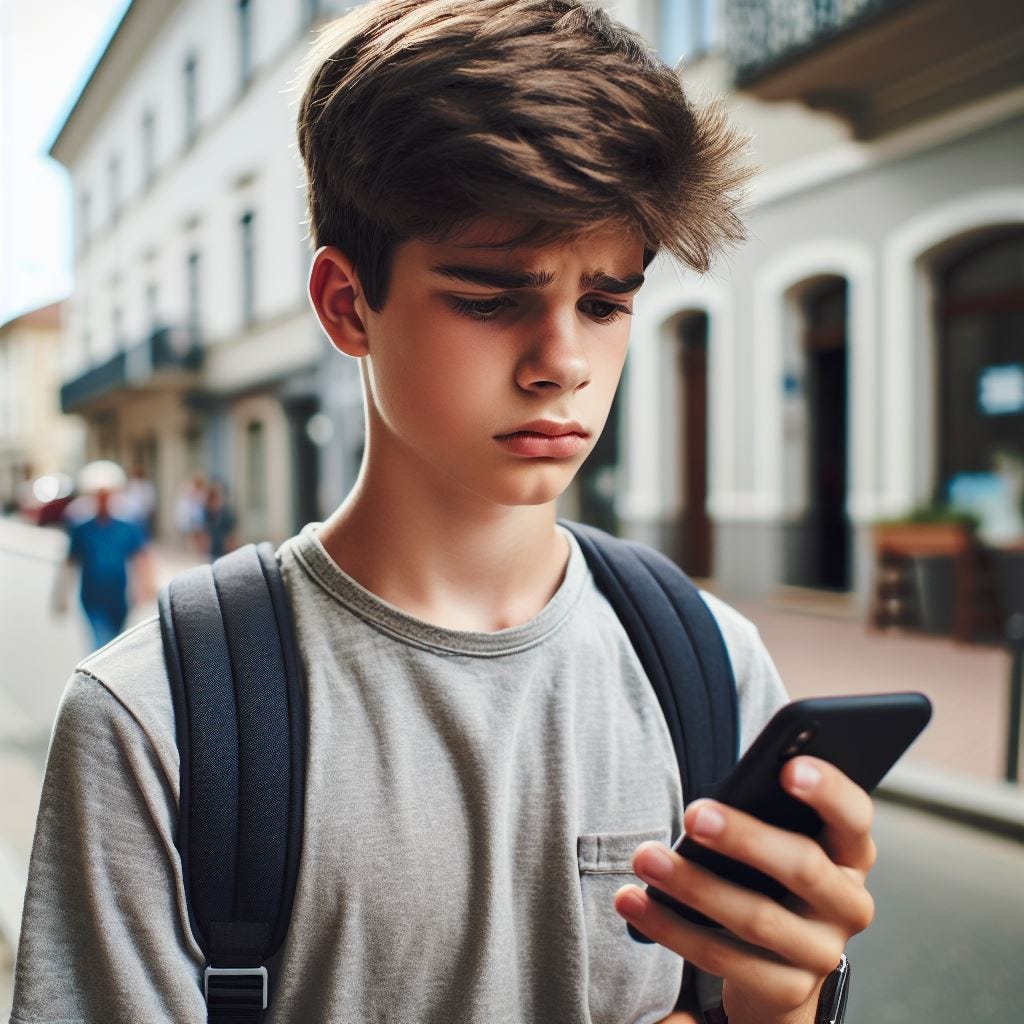This is the second in a series discussing the Australian legislation banning people under 16 from using social media. The previous post is here .
I’m writing from the perspective of a longstanding user of new media and also as someone with personal experience of dealing (not very successfully) with problems of under-16 screen addiction. On the other hand, I’m not a technical expert so I may get some details wrong. I’ll be happy to accept correction on these points
The evidence
The social media ban was rushed through Parliament with no real inquiry into the nature of the problem it was supposed to solve or the likely effects of a ban. Evidence from mental health experts on the question of whether and how social media use is harmful is at best inconclusive, as far as I can determine.
But the advocates of a ban haven’t worried too much about that. They’ve relied on casual correlation and on the testimony of instant experts, with no particular expertise in the mental health of young people.
The most commonly cited piece of evidence is the fact that mental health problems among young people have increased, starting 10-15 years ago around the time that social media became a Big Thing. Correlation is assumed to imply causation.
I have to wonder whether people making this point have been watching or reading the news. It’s been increasingly awful ever since the 9/11 terror attacks more than 20 years ago. Endless wars, global heating, the Global Financial Crisis and the decade of austerity that followed, Trump, Covid and now Trump again. I have a naturally optimistic temperament, but that hasn’t been enough to stop me getting more and more depressed.
And I’m not alone. Depression among old people increased greatly between 2010 and 2019 and further since the onset of the pandemic [1]
Depression among the old has been reflected in their strong support for far-right political parties in many countries, and for the nostalgic politics of Brexit and MAGA. You could make a plausible-sounding case that exposure to talk radio, outrage media and so on is driving this. And if teenagers were making the rules, they might force old people to turn off their preferred media. But the only real solution is to work for a less depressing world.
The other main source of evidence has been from instant experts, most notably Jean Twenge and Jonathan Haidt
Twenge is an exponent of the intellectually discredited, but still popular, idea of generational analysis. I’ve been pointing out the absurdities of this idea for 25 years now. My criticisms and those of others have gradually come home. Most notably the Pew Research Center, a longstanding user of the framework, has announced “should not expect to see a lot of new research coming out of Pew Research Center that uses the generational lens.” I reviewed Twenge’s latest book here concluding “for serious scholarly work, five-year birth cohorts, categorised by race, gender and class background, are much more useful. For entertainment purposes, astrology is just as good and less divisive.”
I didn’t pay much attention to Twenge’s discussion of Generation Z. But her work perfectly illustrates a point I’ve often made that much of the generation game literature consists of restatements of long-standing cliches about “young people these days” and old people “blocking up the halls”. In 2006, Twenge published a book on Millennials, entitled Generation Me: Why today’s young Americans are more confident, assertive, entitled–and more miserable than ever before. Her description of Millennials then was very similar to that of Gen Z now.
I’m underwhelmed by Twenge’s work, but she appears to be an honest scholar. By contrast, I’ve long regarded Jonathan Haidt as a charlatan, whose message shifts over time, but always in a way that appeals to a big audience. I first came across his work in 2012, and responded critically. That was about the time he published The Righteous Mind, where he presented himself as a liberal, concerned that fellow-liberals misunderstood the concerns of conservatives. Whereas liberals saw conservatives as driven by racism and misogyny, Haidt argued that they were actually motivated by concerns about moral purity and legitimate authority. Criticising them just created unnecessary division. I saw this as an example of the well-known Internet tradition of “concern trolling” [2]
When Donald Trump emerged as the conservative standard-bearer, the moral purity stuff looked pretty silly, so Haidt moved on. Along with Bari Weiss, Ben Shapiro and Sam Harris he emerged as part of the self-described “Intellectual Dark Web”, characterised mostly by complaints about being silenced by leftwing critics. These complaints were, of course, widely aired in a variety of prominent platforms. When Republicans demanded forcible silencing of protests over the Gaza genocide, these free-speech warriors were nowhere to be found.
With his usual agility, Haidt has jumped on the bandwagon of concern about social media. And, unsurprisingly, he has been amplified by traditional media, which have been at least as problematic, but get a free pass in this debate.
Given that we have no real understanding of the problem, it’s hard to know how, if at all, the solution of a ban is going to work. But the legislation is unlikely to be repealed, so it’s worth thinking about what might happen when it takes effect. More soon, I hop.e
fn1. As is often the case, evidence is mixed. The advocates of a social media ban cite studies showing no such increase among the old.
fn2. A more comprehensive taxonomy of right wing trolls is here https://johnquiggin.com/2018/11/18/trolls-crosspost-from-crooked-timber/
